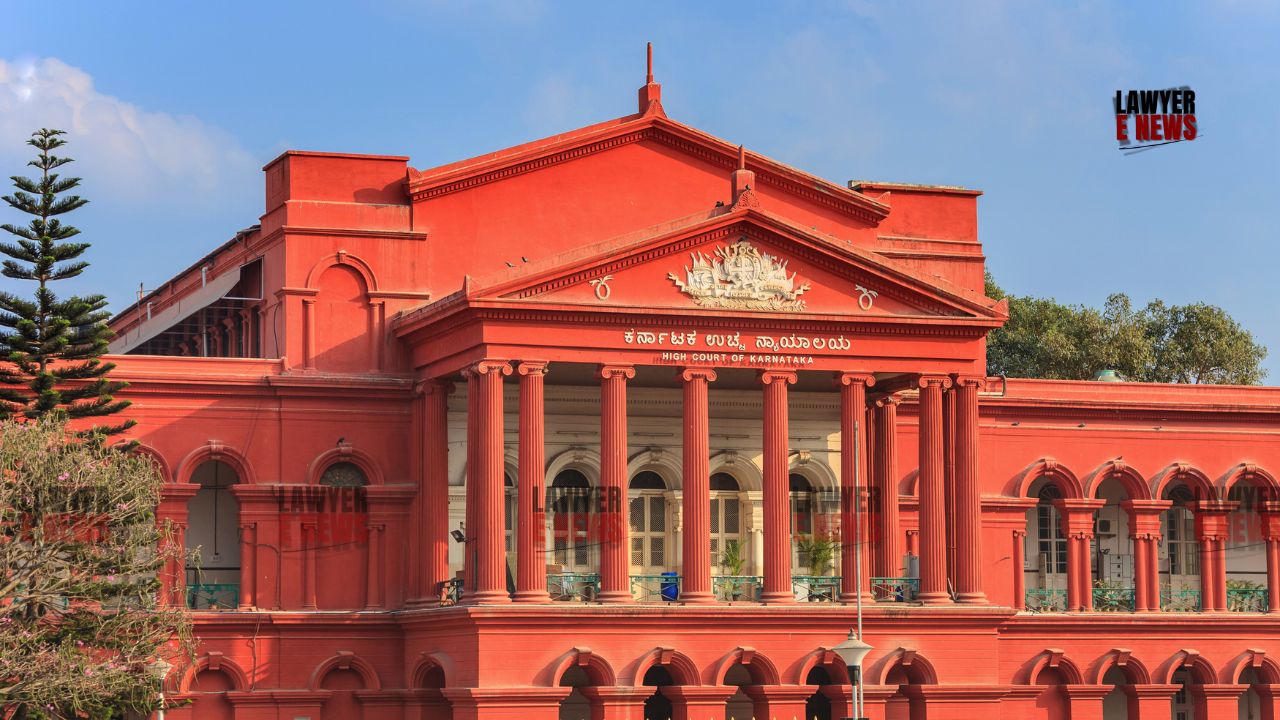-
by Admin
18 February 2026 2:25 PM



“Strained matrimonial relationship cannot be allowed to deprive the petitioners of their liberty without compelling need for custodial interrogation”— Karnataka High Court granted anticipatory bail to a man and his relatives who faced serious allegations of cruelty, unnatural sexual acts, digital misappropriation, and wrongful confinement of a child—charges brought by the man's estranged wife. While the complaint painted a disturbing picture of abuse, the Court found the dispute primarily rooted in marital discord and concluded that limited custodial interrogation, followed by release on bail, would suffice to protect justice.
“Ends of justice would be met if petitioners are allowed limited custodial interrogation followed by bail, subject to strict conditions.”
“A Cancelled Relationship Cannot Justify Continued Pretrial Incarceration”—Court Rejects State’s Plea for Arrest Based on Allegations Alone
The complainant alleged that the husband had forced her into unnatural sexual activities, doubted her fidelity after watching adult content, assaulted her, and abducted their child after deleting sensitive data from her phone. However, the Court refused to let these claims override the accused’s liberty:
“The allegations are in the backdrop of a strained matrimonial relationship. A trivial issue has been blown out of proportion.”
Acknowledging that an FIR under serious provisions like Sections 3(5), 85, 115(2) of the BNS, and Sections 66, 66D of the IT Act had been filed, the Court stated:
“There is no compelling reason to keep the petitioners behind bars merely because a charge has been made. It would be unjustified without material requiring further custodial interrogation.”
“No Absolute Bar on Anticipatory Bail in Matrimonial Disputes Involving New Criminal Code”
Invoking Section 438 CrPC, now substituted by Section 482 of the BNSS, the Court reiterated that anticipatory bail is a safeguard against misuse of criminal process. It underscored:
“Right to liberty cannot be curtailed only on the basis of accusations made in the heat of matrimonial discord.”
The Court considered the State’s opposition, which called the offences grave, but held:
“If the petitioners are directed to join the investigation and cooperate fully, the needs of law enforcement would still be fulfilled.”
“No Justification to Deny Bail When Petitioners Are Willing to Surrender Devices, Cooperate Fully”
Recognising that electronic evidence is central to the allegations, the Court imposed specific conditions for the grant of anticipatory bail, including production of mobile phones and devices allegedly used to delete data and conduct unauthorised financial transfers.
“Petitioners shall appear before the Investigating Officer... and after undergoing custodial interrogation for one day, shall be enlarged on bail.”
By granting anticipatory bail with tailored conditions, the Karnataka High Court has reiterated that bail jurisprudence under the BNSS and IT Act must preserve the balance between effective investigation and protection of civil liberties, especially in familial disputes which often escalate into criminal complaints.
“Violation of any one of the conditions would entitle the prosecution to seek for cancellation of the bail.”
This decision reiterates that liberty is not a casualty of strained marriages—even in the face of grave allegations—when investigative cooperation is ensured.
Date of Decision: 8 May 2025
